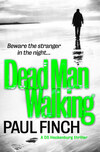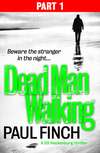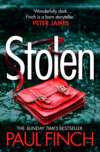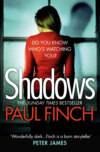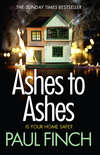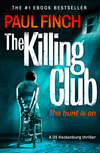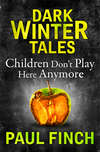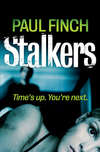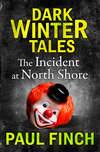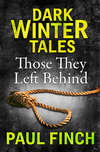Kitabı oku: «Dead Man Walking», sayfa 3
‘They only booked in here for two weeks,’ Hazel said.
‘They never outstay their welcome. The upshot was I canvassed all the hotels and bed and breakfasts.’
‘And that worked?’ She looked sceptical. ‘I mean, even in the off-season there are thousands of young couples who come up to the Lakes.’
‘Yeah, but not so many who’ve got a gooseberry in tow.’
‘I don’t get you.’
‘You may recall … I didn’t ask you if there were any adult couples staying here. I asked if there were any adult trios.’
‘Ohhh.’ Now Hazel looked impressed. ‘Who’s a clever boy?’
‘It struck me there’d have to be a third thief, someone concealed in the Hyundai. He would do the actual stealing while the others put on their show.’
‘And one such trio was staying here,’ she said. ‘And they even drove a Hyundai.’
‘And the rest is history.’ He smiled. ‘Mind you, I’m not saying we didn’t get lucky that they happened to be rooming right here.’
Hazel continued mopping the bar. ‘So long as they’re gone. I mean I hope they haven’t left anything behind … I wouldn’t want them coming back.’
‘I wouldn’t worry about that. Quite a few forces want to talk to them. They’ll be in custody a good while yet.’
Realising he hadn’t paid for his pint, he pushed some money across the bar-top, but she pushed it back. ‘On me. For a job well done. I’ll tell you what … I’d never have had them pegged for criminals. Bit of a curious mix, I suppose … mid-thirties, mid-twenties and a teen, but they didn’t seem rough.’
‘Successful crooks are rarely dumb. You want to infiltrate quiet communities, it doesn’t make any sense to ride in like a bunch of cowboys. Not in this day and age.’
‘Makes you realise how vulnerable we are up here, though.’
‘Nahhh,’ came a brash Irish voice. Mary-Ellen had materialised alongside them, now in a black tracksuit with ‘Metropolitan Police’ stencilled across the back in white. She leapt athletically onto the bar stool next to Heck. She was toothy but pretty, with fierce green eyes and short, spiky black hair. A champion swimmer, fell-walker and rock-climber, she radiated energy and enthusiasm – even now, at the end of a long, tough shift. ‘You’ve got us two, haven’t you?’ she chirped. ‘We’re a match for anyone.’
‘And here’s the other girl of the moment,’ Heck said. ‘Wouldn’t have been able to do it without her, either.’
‘What’ll you have, M-E?’ Hazel asked.
Mary-Ellen gazed at Heck with mock astonishment. ‘You buying, sarge?’
‘I’m buying,’ Hazel said. ‘You two have taken some nasty people off the streets today. Our streets. And with the bad weather due, they could have been stuck around here for God knows how long. Who knows, we could have been murdered in our beds.’
‘Don’t think they were quite that nasty,’ Mary-Ellen replied with her trademark rasping chuckle. ‘But I’ll have a lager, cheers. I’ll tell you what … felt good getting our hands on some proper villains for a change, eh?’
‘Too true,’ Heck said, peeling away from the bar and heading to the Gents. ‘Excuse me, ladies … too sodding true.’
Neither of the women chose to comment on that parting shot.
Mary-Ellen was a newcomer to the Lake District herself, having transferred up only a couple of months ago from the Met, just half a month after Heck in fact. But despite spending her last four years in Britain’s largest urban police force, she had worked exclusively in Richmond-upon-Thames, a well-heeled area with relatively low crime rates, and lacked Heck’s experience of inner-city policing and major investigations. But given that the most serious crimes they tended to have to deal with up here involved low-level drug dealing, thefts from gardens, and the occasional drunken incidents in pubs – she could understand how he might be feeling a little restless. He’d taken to this distraction-thefts enquiry giddily, like a kid in a toy shop, and had almost seemed disappointed they’d closed the suspects down so quickly. Of course, from Hazel’s perspective, the whole thing had been fascinating but also a little unnerving – not just because it had revealed the presence of real criminals, but because it had allowed her a first glimpse of Heck’s edgier, more adversarial character. In the real world, the handsome, homely landlady – newly divorced, thanks to her beer-bloated rat of a husband running off with one of his barmaids two years ago – should be the apple of every single bloke’s eye. The problem was that there weren’t that many single blokes in the Cradle. As such, it was perhaps no surprise Hazel and Heck had gravitated towards each other. But Mary-Ellen couldn’t help wondering how long it could last.
Not that it was very clear to anyone, Heck included, what he and Hazel’s actual relationship was.
Heck himself pondered this as he stood washing his hands in the bathroom. It had occurred by increments, if he was honest. With near-reluctance, as though both parties were trying to avoid being hurt, or perhaps trying to avoid hurting each other. But the mutual attraction had steadily grown: the furtive looks they’d exchanged, the occasional touching of hands, Heck finding himself perched comfortably at the end of the bar where the till and telephone sat, a position of familiarity that wouldn’t normally be reserved for everyday customers. Despite all that, there were some confidences he wasn’t yet prepared to share with Hazel – primarily a concern that he was wasting himself out here in the boondocks. Partly this was through fear. Hazel was so proud of this small, successful business she ran. She adored her tranquil life in Cragwood Keld, this ‘haven in the mountains’ as she called it. The idea of moving anywhere else was hardly likely to appeal to her. In that respect, Heck’s increasing boredom with his current post was a subject he never gave voice to.
‘Will I have to give evidence?’ Hazel asked when he returned to the bar.
Heck pondered. ‘Shouldn’t think so. I mean, there’s nothing they could cross-examine you on. I enquired if you knew anyone matching a certain description. You did and gave me a statement. After that, you had no further involvement. In any case, they’ve already coughed to the distraction-thefts up here in the Lakes, so the chances are that part of the case won’t go to trial.’
‘I may need that from you in writing if I’m not going to worry about it,’ she said, moving away to serve Burt Fillingham.
‘So what do we think?’ Mary-Ellen asked Heck. ‘Good day?’
‘Very good day.’
‘Hazel’s right about the weather. Forecast’s terrible. Freezing fog up here tonight and tomorrow. Maybe even longer. Visibility down to a few feet.’
‘Great. Life’ll be even quieter.’
‘Hey …’ She elbowed him. ‘A few detectives I know’d be glad of that. Catch up on some paperwork.’
‘To catch up on paperwork, M-E, you first have to generate it.’
She regarded him appraisingly. As a rule, Heck didn’t get morose. But he was leaning towards glum at present. ‘Heck, didn’t you volunteer for this Lake District gig?’
‘Yeah … sort of.’ He waved it away. ‘Sorry … quiet is good. Course it is. Means low levels of crime, people sleeping safe in their beds. How can I complain?’
She chugged on her lager. ‘It won’t be cakes and ale. There’ll be accidents. People’ll get lost, get hurt … there’s always some bellend who’ll come up here alone, whatever the weather man says.’
Heck pondered this. It was true – the fells were no place for inexperienced hikers, especially in bad weather. And yet all winter the amateurs would try their hands, necessitating regular and risky turn-outs for the emergency services. If this coming winter turned particularly nasty, the Cradle itself could face problems. With only Cragwood Road connecting it to the outside world, snow, sleet and even heavy rain had the potential to cut them off. The predicted fog would be even more of a nuisance as it might prevent the Mountain Rescue services deploying their helicopter.
‘I think I can safely say,’ Heck concluded, ‘that even I would rather be tucked up warm in bed than dealing with that lot.’
‘I’m sure that’ll be an option,’ Mary-Ellen said, as Hazel came back along the bar.
‘Looks like there won’t be much custom in here for the next few days,’ Hazel commented.
‘Just what we were saying,’ Mary-Ellen said, drinking up. ‘Anyway, I’m off. Thanks for the beer.’
‘Bit early …?’ Heck said.
‘True Detective’s on satellite again tonight. Missed it the first time round.’ She sauntered out of the pub. ‘See you later.’
‘True Detective …?’ Hazel mused. ‘Isn’t that the one where they were after some kind of satanic killer?’
‘Seem to recall it was,’ Heck replied.
She mopped the bar-top. ‘Not the kind of thing we get up at Witch Cradle … despite the name.’
‘So I’ve noticed.’
‘These sneaky buggers pinching people’s handbags and wallets are about the toughest we’re used to up here.’
‘Let’s hope it stays that way.’
She gave him a half-smile. ‘Yeah … course you do.’
‘Hey, I may surprise you.’
‘Oh?’
‘I’m adaptable. The quiet life has its attractions.’
‘Such as?’
He shrugged. ‘We’re all adults. It’s not like we can’t find ways to fill these long, uneventful hours.’
Hazel smiled again, saucily, as she pulled Ted Haveloc a pint.
Outside meanwhile, a front of semi-frozen air forged its way across the mountains and valleys of northwest England, sliding under the milder upper air and gradually forming a dense blanket of leprous-grey fog which, in a region already famous for having very few streetlamps, reduced visibility to virtually nothing. The scattered towns and villages were shrouded. Cragwood Keld – a hamlet of only fifteen buildings – was swamped; one house couldn’t see another. And of course it was cold, so terribly cold, with billions of frigid water crystals suspended in the gloom; every twig, every tuft of withered vegetation sprouting feathers of frost. By eleven o’clock, as the last few house-lights winked out and the full blackness of night took hold, the polar silence was ethereal, the stillness unearthly.
Nothing stirred out there.
These were foul conditions, they’d say.
It was a foul night all round.
The foulest really.
Abhorrent.
Loathsome.
Chapter 2
‘We just have to get to lower ground,’ Tara said tiredly. ‘Then we can flag a car down or something.’
‘I agree that’s the obvious solution,’ Jane replied, vexed, ‘but don’t keep saying it over and over, as if it’ll be some kind of doddle and that it’s somehow stupid of us to not have done it already. For the last three hours, the only way to get to lower ground has been over precipices or down vertical drops.’
Tara made no initial response, mainly through guilt.
It had been her idea to finish their week-long camping trip by taking a well-trodden hilltop path from Borrowdale, over High Raise and Great Castle Howe, and down into Great Langdale. On paper it had all looked so straightforward; in fact easier than that, and probably very rewarding. After a difficult week, it had felt as if she was plucking victory from the jaws of defeat. The campsite at Watendlath hadn’t been all they’d hoped for, primarily because it was late November and the tourist season was long over. A few other hardy campers were present – hardier than Tara and Jane, it had to be said – but the site was largely empty, and its facilities operating at a reduced level; the toilets and showers were open, and that was about it. The weather conditions, while not exactly disastrous, were testing; the mornings damp and cold, the afternoons slightly drier but still cold, and the nights, freezing. On top of that, they were not experienced at this sort of thing. Their tent was old and somewhat mouldy; it was also single-skinned, which offered them zero protection against insects and condensation; they’d brought foam mats instead of truckle-beds, and their sleeping bags were old and filled with duck-down, which when it got damp stayed damp – and it had rained several times already that week; boy, had it rained.
None of this had made for a comfortable time. But worse still, they were bored. Neither Tara nor Jane classified themselves as party girls, but they were on their holidays and would have liked a drink now and then. Unfortunately, they’d used up all their spare backpack space on food supplies, and had assumed before arriving there’d be somewhere close by where they could stock up on booze once they’d got here – but there wasn’t and neither had a car, so they couldn’t just drive out. Jane had her iPad, so they could watch movies and listen to music – at least that had been the plan, but the device’s battery had died within a day and Jane had neglected to bring her charger.
As such, Tara’s sudden suggestion that they stop moping around the camp and actually get up into the wilderness – do some real walking, get some proper exercise and fresh air – had seemed like a godsend. It wouldn’t even be that difficult, she’d said, as they pored over a map on the fourth morning. Watendlath to Elter Water was not a great distance. The guidebooks described it as a ‘challenging route’, but they weren’t looking for a stroll in the park. If it took them all day, so much the better – they had nothing but time anyway. Once they reached Elter Water, they could catch a bus to Ambleside, stay overnight in a B&B, and head for home by train.
‘I mean, how difficult can it be to just check the weather forecast?’ Jane grumbled as they trudged doggedly on, their backpacks jolting their aching spines.
‘With what, Jane?’ Tara retorted. ‘The club and bar were closed, so we had no access to a telly. Our phones aren’t getting any signal up here. No one was selling newspapers on the site, and even if there’d been sufficient Wi-Fi for your iPad to be any use, the bloody thing ran out on us …’
‘Alright, alright, for Christ’s sake!’ Jane’s face reddened, and not just from the unaccustomed exertion.
On all sides, meanwhile, the midnight fog hung in impenetrable drapes. At this height and temperature it was like movie fog, a dense, grey mantle that rolled and twisted, obscuring everything. There hadn’t been any sign of this when they’d set off that morning, in broad daylight – it had been clear as a bell. But even if it had still been daylight now, only a few yards of harsh, rocky ground covered with frost-white tussocks would be visible. And of course, it wasn’t daylight; it was dark, which didn’t so much obscure the surrounding landscape as obliterate it. Naturally, they’d neglected to bring a torch. The last few occasions they’d needed light – to try to make sense of a dog-eared map, which was now next to useless anyway, as some time back they’d unconsciously veered off the flinty footway that was their prescribed route – Tara had switched her phone on, using the dull glow of its facia. She was increasingly reluctant to do this now, as she didn’t want to run its power down. It would be typical of their luck if they suddenly entered a better reception area and were able to make an emergency call, only for the battery to die.
The guidebook had predicted the journey would take six hours, meaning they’d finish well before nightfall, but they’d now been struggling along for at least twelve.
‘Look …’ Tara tried a more placating tone. ‘If we can’t find our way down to a road, we should maybe think about pitching the tent. Just camp for the night. Hopefully this fog will have lifted by morning.’
‘Newsflash, Tara … it’s perishing bloody cold!’
‘So we wrap up.’
‘Everything’s wet, you dozy mare! We’ll die from bloody hypothermia.’
Their voices echoed and re-echoed, creating the illusion they were in a chasm rather than on some open hillside. It was more than uncanny.
‘Jane, it can’t be a good idea to just keep ploughing on. We don’t know where we’re going, and this ground seems to be sloping upward.’
‘We can hardly pitch the tent when we can’t see our hands in front of our faces,’ Jane said. ‘Anyway, what if the fog hasn’t gone by tomorrow? We’re up on the fells, remember … not in some nice park a few yards from your mum and dad’s nice little middle-class house.’
‘Alright! You don’t need to be such a bitch about it.’
‘Anyway, what good is sitting tight going to do? No one’ll come looking for us, Tara, because no one fucking knows we’re here. Didn’t it ever enter that air-filled brainbox of yours to tell someone what we were planning? And I don’t mean that bloody campsite owner. I mean someone who might actually care about us, who might actually have been listening when you were talking to them. Like our fucking parents, perhaps! I mean, Jesus, how difficult can it fucking be …?’
‘Alright, I said! Christ’s sake, Jane … I’m in as much danger as you are!’
Jane muttered some incoherent, vaguely foul-mouthed response, and they trod along in silence for a few more minutes, hearing only their own grunted exertions and the hollow thuds of their feet. Fleetingly, oddly, Tara was uncomfortable with the otherwise complete silence. It was a stupid thought, of course. There was no one else up here, but why did she get the sudden feeling their latest outburst, which would likely have been heard for miles and miles on a night like this, might have drawn the attention of someone listening? Even if it had, that ought to be something they’d want – and yet there was a brief queasy sensation in her tummy.
‘Sorry about the airhead thing,’ Jane muttered self-consciously.
‘It’s alright,’ Tara said. ‘Sorry about the bitch.’
Tara Cook and Jane Dawson were able to converse like this, one minute at each other’s throats, the next offering consolation, because they were close enough to be sisters, having grown up together in Wilmslow.
Jane was now a sales assistant at Catwalk, a clothing retailer whose branded products were strictly mid-range, while Tara had a bar job but was also studying for her PhD at Manchester Met. Money was tight for the both of them and, wanting to get away for a bit, it had been Tara’s idea that they visit Cumbria.
‘Let’s just put everything on hold for a few days,’ she’d said enthusiastically. ‘Let’s go camping in the Lakes. We both love it and it will do us a world of good.’
It was true, they did both love it. As children they’d holidayed in the Lake District many times with their respective families. But on those occasions, they’d stayed at hotels, rented cottages, or bed and breakfast accommodation. More to the point, they’d travelled up here in June, July or August – not November. Even so, Jane had thought the idea a good one.
‘Let’s do it,’ she’d said.
It hadn’t been difficult arranging it, given it was the off-season, and they’d been able to sort everything out that same evening. It was going to be great, Tara said.
It scarcely felt that way now: lost, frozen and well over a thousand feet up, and if that wasn’t bad enough, the ground was indeed sloping upward again. It had been difficult enough coping with loose, ice-slippery stones, and clumps of spiky mountain grass – so much so that they hadn’t initially noticed the shallow upward incline – but now it was steepening sharply. In addition, the fog seemed to be thickening, which was hardly helped by the clouds of soapy breath billowing from their lungs. Even walking shoulder-to-shoulder, they were only aware of each other as featureless phantoms.
‘Look Tara,’ Jane said, unconsciously lowering her voice. ‘We need to get real about this. We’re in pretty serious trouble here.’
‘I know …’
And Tara did, though perhaps only now was it really dawning on her. When you were down in the Lake District’s lower country on a bright summer’s morning, taking tea and crumpets in whitewashed villages, it seemed such a benign environment. The stories you heard about people getting lost on the fells and dying from exposure surely applied to another time and another place.
And yet suddenly, bewilderingly, that time was now and that place was here.
The oft-quoted phrase, ‘how did we get into this mess’, occurred to her with shocking force. It felt as if they’d led themselves blindfolded, for several hours, to this apparent point of no return.
‘Well if we’re not going to camp, we have to keep moving,’ Tara said, doing her best to stay upbeat. ‘That’ll help us stay warm.’
‘And will wear us down,’ Jane argued, seemingly unaware she was contradicting her own position of a few minutes earlier. ‘Reduce our ability to resist the cold. I can barely feel my hands and feet as it is.’
Tara knew what she meant. It was just before twelve o’clock now, but the temperature would continue to drop until well into the early hours.
‘Can’t feel our hands and feet, can’t see our hands and feet more like,’ she mused. ‘We’re disappearing by inches.’
‘Not funny, Tara, Jesus!’
‘Yeah, I know. I’m sorry.’
‘At least the slope’s levelling off.’
Thankfully, the gradient had flattened out again, and a second later they walked into a dry-stone wall. It came to roughly chest-height on Tara, higher still on Jane, and yet the fog was so impenetrable they blundered into it with enough force to induce pain and surprise. Tara switched her phone on. It created a minor capsule of dim aquamarine light around them, and shimmered over the smooth, neatly stacked stones. The wall led away to left and right, quickly vanishing.
Tara switched the light off again, plunging them back into darkness.
The wall wouldn’t be difficult to scale, though both of them were aching and bone-weary, but at least it was a solid fixture, and it broke the surreal monotony of this place – not that it was something to actually be reassured by. Hundreds of miles of dry-stone walls snaked across the Lake District National Park, through the lower valleys, up the teetering fell-sides, across the desolate tops of ridges and plateaux. Sure, it was a sign that civilisation wasn’t too far away – as the crow flew, or if you were on horseback. Not so much if you were a tired, and increasingly cold and disoriented foot-slogger.
‘So do we climb over it and keep going?’ Tara wondered.
‘Why?’ Jane asked.
‘What do you mean?’
‘Why climb over it? Why not follow it?’
‘It won’t lead to a farmhouse, or anything like that.’
‘At least we’ll know we aren’t walking in fucking circles.’
‘Jane …’ Tara tried to remain patient. It served no purpose to stand here sniping at each other in the murk. ‘Look … people don’t walk around in circles, okay? Not in real life. That only happens in the movies.’
‘Oh, Jesus Christ … we’re lost in the middle of nowhere, and you’re giving me Halliwell’s fucking Film Guide.’
‘Jane, come on …’
‘I’ve got a film for you, Tara. The Shining. Remember that … when he got lost, and in the morning he was dead, covered in ice?’
‘That was up in the mountains.’
‘We’re in the fucking mountains!’
‘Not in Colorado.’
‘Look, Tara … below zero is below zero, whether it speaks with a Yank accent or Cumbrian.’
‘Jane, panicking won’t help.’
‘I’ll tell you what … let’s get over this blessed wall. We have to do something soon, or I’m going to smack you one.’
Jane’s voice had taken on a new, shrill intensity. Tara imagined that, were she to switch her phone on again, she’d see eyes like polished marbles straining from her friend’s long, boyish face; the skin stretched like shiny parchment over those unattractive, hard-angled bones.
That was when they heard the whistling.
Or rather, Tara heard it.
‘Wait, shhh!’ she said, fumbling at Jane’s arm.
‘Don’t shush me, Tara!’
‘No, listen.’
Because she was in such a state that she’d grab at any straw, no matter how slender, Jane allowed her friend to speak. But of course, she heard nothing herself.
‘Yeah, great … the silence that signifies impending doom.’
‘No, I heard something.’
‘What?’
‘Listen!’
They fell quiet again, and now indeed there was something – a tune of some sort. At first it was very faint, as though being carried on the breeze. Except that there was no breeze. And the longer they listened, the clearer it became. Incredible though it seemed, someone relatively close by was whistling. Both of them recognised the tune, though neither could initially put a name to it, and now they were too excited to try.
‘I don’t believe it,’ Jane said. ‘Where’s it coming from?’
‘Over there, I think.’ Tara indicated the other side of the wall.
‘Hello!’ Jane shouted at the top of her voice. ‘Hello, is someone there?’
‘Jane, don’t,’ Tara said.
‘What’s the matter?’
‘I don’t … nothing. It’s just silly.’ The misgivings Tara had briefly felt, about how vulnerable they were trekking through this endless gloom, had returned; suddenly, pinpointing their exact location seemed like a bad idea. But surely that was folly – a fear born of some ancient animal instinct, whereas logic advised that if there was someone out there, they should draw attention to themselves as soon as possible. ‘I just thought …’
‘Shhh!’ Now it was Jane’s turn to hit her friend’s arm. Whoever the whistler was, he was persisting with it. He sounded closer, and yes, it did seem as if he was somewhere on the other side of the wall.
‘Hello!’ Jane shouted again, attempting to scramble up the bricks, which wasn’t easy with feet numb inside frozen boots. Tara switched her phone back on, so they could identify hand and footholds. Jane reached the top of the wall first, and straddled it. ‘Excuse me, we’re lost! Can you help us?’
The whistling ceased.
‘He’s heard us,’ she said.
‘Hello!’ Tara called.
The only reply was another dim echo of their own voices.
Nevertheless, they were sufficiently re-energised to clamber down the other side of the wall. ‘Whoever it is, he probably can’t believe there’s someone else up here,’ Tara said, laughing with relief. ‘Excuse me … we’re over here! I’d like to tell you which direction, but …’ she laughed again, ‘I don’t know.’
The whistling recommenced. Now they were on the other side of the wall, it sounded as if it was coming from just ahead of them, but a way to the left.
‘What the hell is he still whistling for?’ Jane said. ‘Didn’t he hear us?’
‘Oh God,’ Tara replied. ‘Suppose he’s got earphones on, and he’s whistling along to a song.’
‘Oh shit. Okay … we’ll just have to find him.’ Jane started forward urgently, hoisting the straps at her shoulders with gloved thumbs.
‘Strangers in the Night,’ Tara panted.
‘What?’
‘That song he’s whistling … it’s Strangers in the Night. You know, the old Frank Sinatra number.’
Jane listened, and she too recognised the timeless ditty. ‘Yeah … what a choice of song for a place like this. Quite apt for us though, eh?’ She chuckled, though there wasn’t much humour in it. ‘Come on, Tara … we’ve got to find this guy.’
Tara also adjusted her pack, and hurried in pursuit. Again they were blundering through foggy blackness, their feet crunching on clumps of frozen grass. But the whistling was getting louder, clearer. Perhaps somewhere just ahead there’d be a campsite, maybe containing two or three climbers or fell-walkers. Their hi-tech canopies would be arranged around a small, neat fire. The guys themselves would be lean, rugged outdoor types, probably bearded, stoking the flames, eating peanuts, chocolate and other energy-enhancing foods, drinking hot coffee from a thermos flask; maybe it was laced with rum or whiskey to give it some bite.
But Jane and Tara found no such campsite.
They’d walked in what they were certain was the right direction for a good hundred yards, increasingly tired and irate again. And still the unlit reaches of fog extended on all sides of them. The whistling persisted somewhere ahead, but how far ahead they had no clue. And now, very abruptly, it ceased. Despite their own heavy breathing, the silence was ear-ringing.
‘Hello!’ Jane shouted again, with more than a touch of her normal petulance. ‘Newsflash … there are people lost out here!’
They waited but there was no response.
‘Come on, mate! You must have heard us by now!’
The whistling recommenced somewhere behind them. Strangers in the Night again. But now at a slower pace – deliberately slower, for effect.
‘Is this guy taking the piss, or what?’ Jane said, glancing backward.
‘It must be the acoustics,’ Tara replied. ‘This landscape’s really weird like that. I’ve heard stories about people hearing voices that have come from miles away.’
‘Great, Tara. That’s all I needed to know.’
‘But listen …’
‘Now what?’
‘It’s moving.’
The whistling continued – very clear, very precise, a slow and highly tuneful rendition of Strangers in the Night, but as Tara said, it was drifting from left to right, as though the whistler was strolling casually in that direction.
‘Another atmospheric effect?’ Jane wondered tartly. ‘Or some dickweed playing stupid games?’
‘Why would someone be playing games?’ Tara asked, though it was a question she was posing to herself as much as Jane.
‘Let’s just find the bastard.’
They pressed on, heading right. As they did, the whistling steadily reduced in volume, as though the whistler was retreating from them.
‘Hey, wait up!’ Jane bawled hoarsely. ‘You fucking idiot! We need help!’
‘Jane, that’s not the way you do it,’ Tara hissed.
‘Wait ’til I get hold of him, then you’ll really hear something.’
The whistling stopped. They slid to a halt.
‘Christ,’ Tara said. ‘It’s like he just heard us.’
‘Good, that’s the idea.’
‘Jane, I’m not sure about this …’
The whistling recommenced – closer than it had been, but now on their left.
‘What the hell?’ Jane said. ‘Why is he walking around us?’
